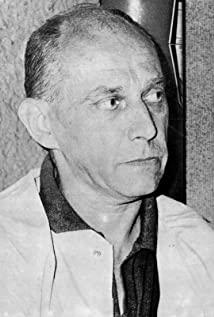-
Narrator: They begin again. The man doesn't die, nor does he go mad. He suffers. They continue.
-
Narrator: This time he is close to her, he speaks to her. She welcomes him without surprise. They are without memories, without plans. Time builds itself painlessly around them. Their only landmarks are the flavour of the moment they are living and the markings on the walls.
-
Narrator: Nothing distinguishes memories from ordinary moments. Only later do they become memorable by the scars they leave.
-
[first lines]
Narrator: [English version] This is the story of a man marked by an image of his childhood. The violent scene which upset him, and whose meaning he was to grasp only years later, happened on the main pier at Orly, Paris Airport, sometime before the outbreak of World War Three.
-
Narrator: [English version] Nothing tells memories from ordinary moments. Only afterwards do they claim remembrance on account of their scars.
-
Narrator: [English version] Above ground, in Paris, as in most of the world, everything was rotten with radioactivity. The victors stood guard over a kingdom of rats.
-
Narrator: [English version] At first, nothing else but stripping out of the present. They start again. The man doesn't die, nor does he get mad. He suffers. They continue.
-
Narrator: [English version] The directors of the experiment tighten their control. They send him back. Time rolls back again. The moment happens once more. This time she is near him. He says something. She doesn't mind, she answers. They have no memories, no plans. Time builds itself painlessly around them. As landmarks they have the very taste of this moment they live and a scribbling on the walls.
-
[last lines]
Narrator: [English version] He looked for a woman's face at the end of the pier. He ran towards her. And when he recognized the man who had trailed him since the camp, he knew there was no way out of time. And he knew that this haunting moment he had been granted to see as a child, was the moment of his own death.
-
Narrator: Soon afterwards, Paris was blown up.
-
Narrator: The prisoners were submitted to some experiments - of great concern, apparently, to those who conducted them. The outcome was disappointment for some, death for others, and for others - madness.
-
Narrator: The human race was doomed. Space was off limits. The only link with survival, passed through time, a loophole in time and then, maybe, it would be possible to reach food, medicine, energy,
-
Narrator: This was the purpose of the experiment. To throw emissaries into time, to call past and future to the rescue of the present.
-
Narrator: The camp police spied even on dreams.
-
Narrator: On the tenth day, images begin to ooze like confessions.
-
Narrator: A peacetime morning. A peacetime bedroom. A real bedroom. Real children. Real birds. Real cats. Real graves.
-
Narrator: No memories. No plans.
-
Narrator: One day, she leans over him. As for him, he never knows whether he moves towards her, whether he is driven, whether he has made it up, or whether he is only dreaming.
-
Narrator: The future was better protected than the past.
-
Narrator: He knew that his jailers would not spare him. He had been a tool in their hands. His childhood image had been used as a bait to condition him. He had lived up to their expectations. He had played his part. Now he only waited to be executed; with, somewhere inside him, a memory of a twice-lived fragment of time.
-
Narrator: [regarding time travel in order to save the present] But the human mind balked at the idea. To wake up in another age meant to be born again as an adult. The shock would be too great.
-
Narrator: It was the starting point for a whole series of tests, in which he would meet her at different times. Sometimes he finds her in front of their markings. She welcomes him in a simple way. She calls him her Ghost.
-
Narrator: [referring to The Woman's face] That face he had seen was to be the only peacetime image to survive the war. Had he really seen it? Or had he invented that tender moment to prop up the madness to come?
-
Narrator: He recited his lesson: because humanity had survived, it could not refuse to its own past the means of its survival. This sophism was taken for Fate in disguise.
-
Narrator: The Future was better protected than the Past. After more, painful tries, he eventually caught some waves of the world to come.
Language
English
English
- English
- English
Currency
$ USD
$ USD
- €EUR
- $USD
- £GBP
- ¥CNY
OK








